Ride the Pink Horse (1947)
“Our friend Shorty was the kind of a crook that nobody likes, not even me — and I’m rather broad-minded about such things.”
|
Synopsis: |
|
Genres, Themes, Actors, and Directors:
Review: The film is atmospherically shot and well-acted throughout, particularly by Gomez (who received an Oscar nomination) as Montgomery’s unexpected supporter: … and Hendrix as petite Pila — though her enigmatic character is a challenging one to parse, given that we never really understand the thrust behind her odd fascination with protecting Montgomery (could the cross she wears around her neck be a sign of some kind?). With that said, Hendrix is dedicated enough to her characterization that we eventually believe in Pila, and she’s certainly a pivotal component of this story. The clever script pulls no punches in presenting a corruption-filled universe, complete with a shrill, hearing-impaired villain (Clark): … a government operator (Art Smith) on hand to warm Montgomery that he’s three steps ahead of him; and a gangster’s moll (Andrea King) who is clearly out to game Montgomery in one way or another. [King is intense in a different way here than her ’50s housewife character in Red Planet Mars (1952).] The cultural world on display is nicely non-Hollywood, with plenty of authentic-looking extras peopling the screen. DVD Savant, however, highlights the film’s problematic approach towards Mexican-Americans, noting: “Pancho [Gomez] instantly reveals himself as an underclass ‘Gunga Din‘ sidekick type, willing to put his life on the line for a handsome caballero he knows absolutely zero about”, and adding, “The film isn’t racist because it shows Gagin [Montgomery] and Marjorie [King] ignoring Pila or condescending to her, but because it idealizes her as a non-white ‘princess’, who is magical but cannot end up with the hero.” Savant argues that Mexican-Americans are ultimately presented as “quaint, sentimentalized” and “do[ing] good things for no reward except to share in the suffering, and when all is done they go back to being quaint.” While this all seems accurate, I view the film as very much a vision of how Gagin sees the world around him, and these depictions ring true to his sensibility; he grows in his cultural understanding and empathy by spending time with people (Mexican-Americans) who are authentically trustworthy, and perhaps that’s a realistic enough shift. Redeeming Qualities and Moments:
Must See? Categories
Links: |



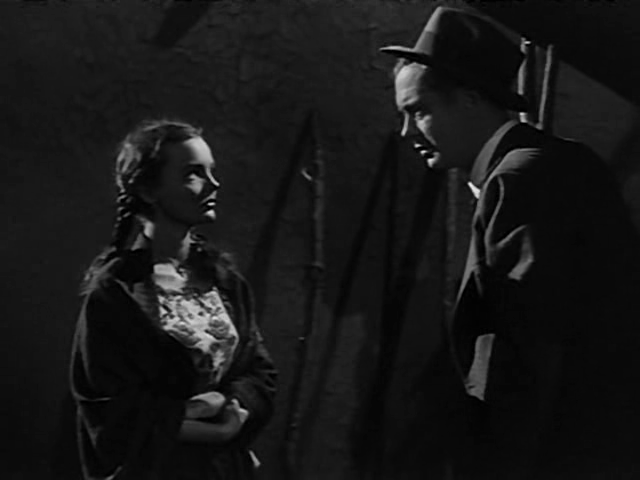
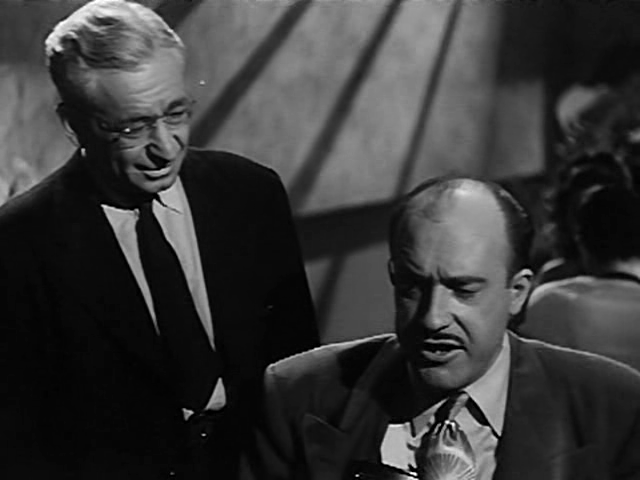
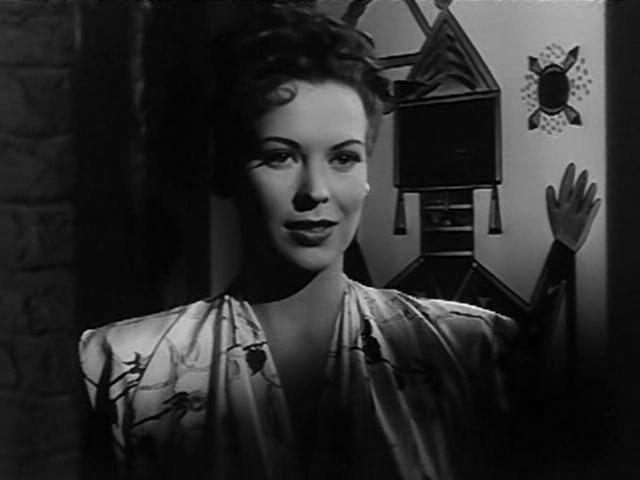
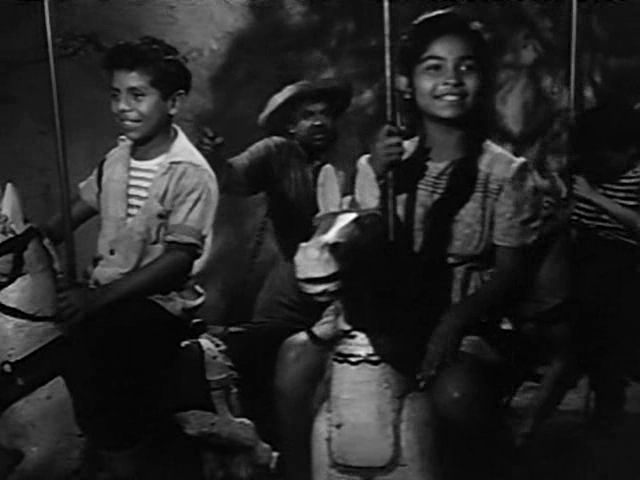
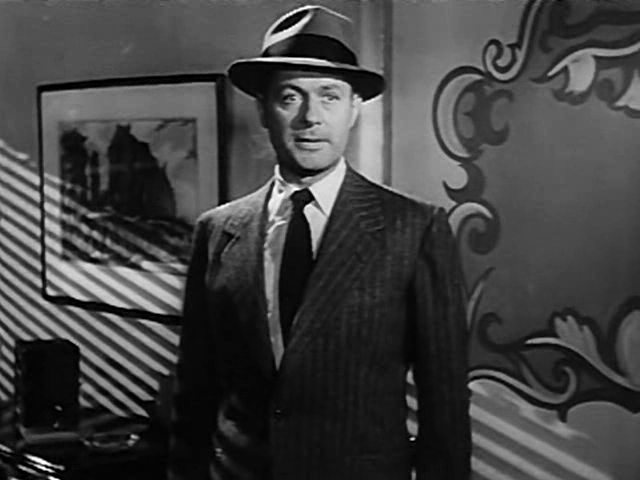
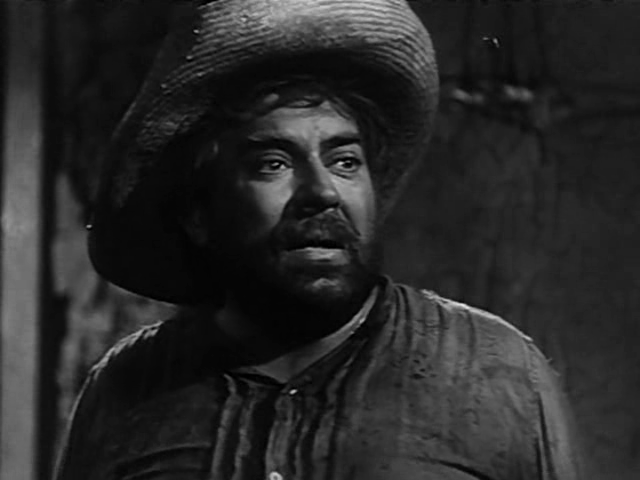

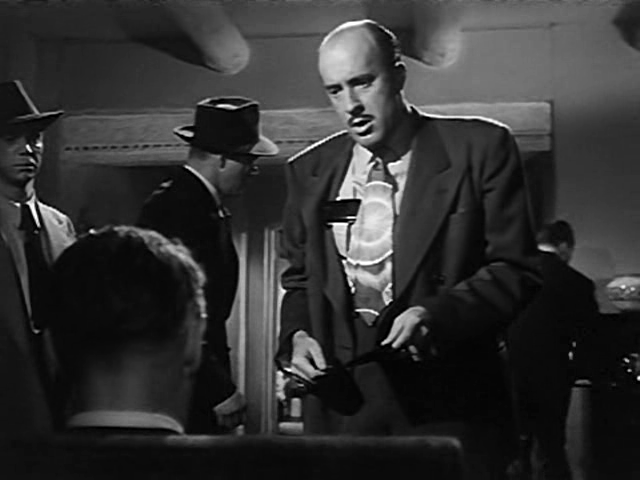
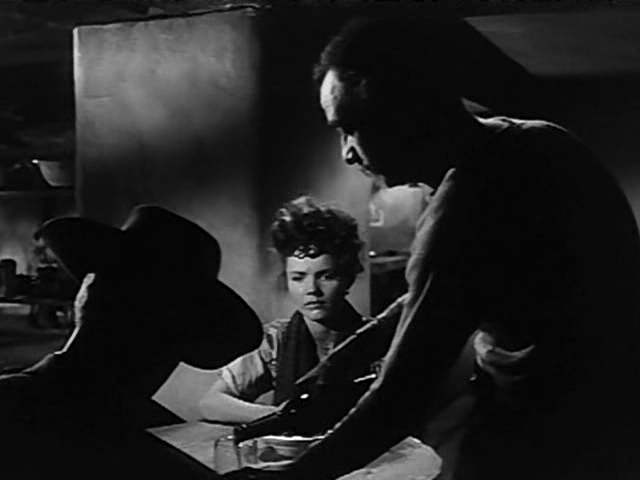
One thought on “Ride the Pink Horse (1947)”
Not must-see.
Slow-moving and ponderous. And a little boring. Apparently director Montgomery was going for slow-burn tension but the specifics of the plot don’t help all that much in adding fuel to the burn. There’s a noticeable, overall lethargy – which, admittedly, may be true to the dull, business-like manner of many of the participants but it sure makes things move at a crawl.
I’d be interested in reading Dorothy B. Hughes’ original novel to see how much of this is actually hers – but the novel is currently out-of-print; it will get a new release in early 2021. Hughes’ also wrote ‘In A Lonely Place’ (which is *quite* different from Nicholas Ray’s film of it, though both versions work well) and ‘The Expendable Man’ (which would also make a good film). My gut tells me that screenwriters Ben Hecht and Charles Lederer took considerable liberty here; the film doesn’t seem to have much of Hughes’ voice.
That said, both Gomez and Hendrix are reasonably effective in their roles.
At least the last 20 minutes or so hold some welcome, dark punch.